After years of false reporting that demonstrated a complete lack of understanding of Apple's supply chain or even the value of its operational expertise, Tripp Mickle of the Wall Street Journal is back, this time with a story about how foolish Apple was to rely on Chinese manufacturing and how hopelessly desperate its plight now is, due to the coronavirus outbreak. He's wrong, here's why.
A false story of manufacturing
Mickle, along with coauthor Yoko Kubota, imagines into life the idea that Apple— lead by its chief executive Tim Cook— foolishly plotted to establish all of its manufacturing in China, and is now hopelessly saddled with that fateful decision and lacks any ability to move production anywhere else. Yet every bit of that tired trope is incorrect.
The article, "Tim Cook and Apple Bet Everything on China. Then Coronavirus Hit," echos the cliche reporting already trotted out elsewhere by dramatically suggesting that Apple's only option now is "weaning itself off China," something that is simply "too challenging to undertake." What a pickle, if it were true! But it's not. Mickle's piece selectively lays out facts, mixes in fallacy, and omits details that would unravel his entire narrative.
Most bizarrely, rather than reporting the reality of Apple's history in China and the actual results of the company's operational strategy over the last twenty years, Mickle instead invents the trite fiction that Cook gambled and lost. How dramatic! And also fictitious.
The Wall Street Journal claims that when Cook first arrived at Apple in 1998, the company was "reliant on its own U.S. manufacturing plants," but then, "following the practices of Dell, Compaq, and other computer brands, he [Cook] started outsourcing to contract manufacturers in Asia." That's simply not true at all.
Apple once did, way back in the 1980s, work to build out Steve Jobs' dream of constructing automated plants for manufacturing Macs in the United States. But those attempts failed disastrously. By 1992 Apple had shuttered its Milpitas, California factory experiment. It was Jobs' successor, Jean-Louis Gassee, who assessed Apple's prospects of building domestically and concluded that it would be impossible to build computers in the United States simply because "we don't have a manufacturing culture: meaning the substrate, the schooling, the apprentices, the subcontractors."
It wasn't because labor was too expensive— the factory was largely automated anyway. It was because America lacked any of the infrastructure needed to support modern, high tech manufacturing, and lacked the political will to invest in building it or in training a workforce of tool and die experts and other engineering skills capable of supporting large scale manufacturing of precision devices. But this didn't occur in 1998; it was well established in 1992. Outside of Apple, Jobs also independently worked to build his own American factory for NeXT machines, which similarly shut down in 1993.
These are established, well-documented facts that are not controversial. To roll out a story that clearly claims that Apple shifted its manufacturing to China in 1998 because Cook was a gambling man is either just seriously sloppy reporting, or a malicious attempt to fabricate a lie capable of supporting other lies. Based on the lies heaped on top, it seems clear that this bludgeoning of history was done on purpose to suggest that Cook almost single-handedly architected the shift of manufacturing out of the U.S., which is completely, ridiculously false.
China had invested in developing the foundation of manufacturing in its Special Economic Zones such as Shenzhen back in the early 1980s, more than twenty years before iPod needed to be manufactured. The United States didn't, and the few high tech American companies that attempted to set up U.S. manufacturing on their own without investment from the government failed.
"Cook and Apple" didn't bet on China. Asia was the only real option for high volume, high tech manufacturing by the early 1990s. Cook played the only game available, and his operational expertise resulted in there being one very large manufacturer of global consumer electronics left in the United States. If Apple had kept trying to build Macs in the U.S., there would never have been an iPod era, iPhone would not have happened, and we'd be left with Chinese-made Linux flip-phones and dreadful Microsoft Tablet PCs from Taiwan.
A false story of operations
Within just the first couple paragraphs, Tripp Mickle's latest Wall Street Journal hit piece lays out the idea that foolish arrogance at the top of Apple's executive leadership not only created "the technology giant's dependency on China," but that "senior managers rebuffed the idea" to even investigate building plants elsewhere, resulting in "frustrated staff" and "unnerved investors," along with the current predicament of suffering from coronavirus interruptions.
The piece referred to the issue of COVID-19 as Apple's "third major setback there in as many years, including the fallout from tensions with the U.S. that included tariffs and slower-than-expected iPhone sales in the country."
Anyone with even the faintest grasp of operations or even simple product management would have to laugh at the idea of "one setback per year" being a problem for the world's largest global tech company. It seems difficult to imagine that Apple's global network of operations would ever experience a single day without some sort of significant "setback" occurring.
"Setbacks" are the very reason why companies have employees and management. Summing up Apple's last three years of building nearly a quarter trillion worth of hardware every year, mostly in China, as involving only a trio of "setbacks" is just simplistically asinine.
But incredibly, this arrogant finger-wagging— embarrassingly unaware of how ignorant it is— comes from the same person who just a few months ago was scolding Apple for caring at all about operations, and was instead admonishing the company for straying from its true roots in fanciful product design and pure technology invention.
Just last summer, Mickle belabored the departure of Apple's Jonny Ive, dramatically writing that it "cements the triumph of operations over design at Apple," while also claiming that Ive left in part due to a "frustration" that Apple's board was "increasingly populated by directors with backgrounds in finance and operations rather than technology."
How does one write with full-on contempt for operations, then turn around and seek to portray Apple as operationally incompetent, unable to anticipate problems, refusing to diversify its operations, and now completely stuck with no options because the only real option available is a complete and total departure from China, which is clearly impossible!
And in particular, how does one write up this total hogwash after hearing from Cook himself that there really isn't a problem in China, and that "setbacks" are exactly what operations is intended to handle? That's Cook's job, along with the entire team of operations experts that Apple employs globally! If there weren't "setbacks," Apple could just be a design company like Mickle imagined a few months ago.
Mickle included a quote from Cook, taken from a recent interview with
Who knows more about what Apple's supply chain needs, the man who ran Apple's operations for years with precision and then became its chief executive as it conquered the tech world, or the Wall Street Journal writer who repeatedly, incorrectly predicted year after year that the next iPhone was going to be a "disappointing" disaster because of his inability to understand some supply chain rumor whispered by somebody he naively believed to be "familiar with the matter"?
In January, Mickle just penned a piece that claimed "Apple Was Headed for a Slump. Then It Had One of the Biggest Rallies Ever," a sort of backward admission that his projection and outlook on Apple was completely wrong, but that he's not even sure why.
Mickle eventually noted in his latest piece that what Cook actually outlined was that "unpredictable events are a facet of modern business" and that "Apple's operations team has previously navigated earthquakes, tsunamis, and other challenges." Cook has also repeatedly framed COVID-19 as a temporary issue that the company is working through, a sharp contrast from the media-driven hype-fest suggesting that Apple will never again make another iPhone and there won't be anyone left standing to buy one.
 Many have forgot that Apple built iPad 2 despite the massive destruction of its supply chain in Japan's 2012 tsunami
Many have forgot that Apple built iPad 2 despite the massive destruction of its supply chain in Japan's 2012 tsunamiAs AppleInsider noted last month, that included the 2011 disaster in Japan that caused devastation to the supply chain of iPad 2— beyond the tragedy of thousands of deaths and massive economic turmoil right in the center of Apple's critical component partners. Few customers even noticed any interruption in the A5 powered iPad 2 because Apple's operations under Cook were able to rapidly adapt and build out the second generation tablet amid fierce competition from Microsoft, Google, Amazon, Samsung, Motorola, Nokia, Blackberry, and many other tablet makers who were less equipped to operationally handle a tablet business.
"The question for us is," Cook stated last week regarding China and COVID-19, "was the resilience there or not? And do we need to make some changes? My perspective sitting here today is that if there are changes, you're talking about adjusting some knobs, not some sort of wholesale fundamental change."
A false story of failure to diversify
Mickle immediately returned to his bizarre argument that Apple desperately needed to jump ship on China entirely, while also trying to establish that this would simply be impossible. To frame this absurd predicament of hopeless doom, the Wall Street Journal lined up a parade of experts and issued quotes presented without enough context to determine if they were even talking about Apple.
Burak Kazaz, a "Syracuse University supply chain professor and former researcher at International Business Machines Corp," was cited as saying that "No executive will admit in a public forum: We should have thought about [the vulnerability to China] But from this point on, there are no excuses."
Yet Apple has clearly and unquestionably "thought about" risks related to China. Mickle even lays out that Apple has been looking at its options for many years, albeit withholding key facts from his readers.
Apple's efforts include working with its partner Foxconn— which based in Taiwan, not mainland China, and operates plants globally— to develop manufacturing capacity in countries including Brazil, where Apple began manufacturing iPhones and iPads for the domestic market back in 2012. Mickle didn't even mention that.
Apple has also worked to develop manufacturing capability in India since at least 2017. Like Brazil, India has worked to both incentivize local production and to tax imports to push Apple and others to invest domestically. Rather than correctly profiling Apple's efforts in India, Mickle only portrayed it as a failure that tried to build iPhone 11 but gave up.
The reality is that Apple has built a series of iPhone models in India, including iPhone XR, and builds enough of those to serve both the domestic market and to export to Europe. That's another fact that undermines his largely fictional narrative, so it's just left out.
Mickle does mention Apple's efforts to build AirPods Pro in Vietnam, using two existing Chinese contract manufacturers that already have plants there. That's a sad contradiction of his theory that it is simply impossible for Apple to build anywhere else.
He also makes mention of Apple's efforts to assemble Mac Pro units in the United States, but Mac Pro is a small scale production run. Apple will not sell tens of millions of Mac Pro models every quarter, so assembling it in the U.S. for domestic demand is more of a convenience and exercise in planning rather than a shift toward manufacturing outside of China.
Further, anyone "familiar with" Apple's operations would be aware that Apple has been assembling some Macs in the U.S. for many years, particularly to accommodate build-to-order machines. The only thing "new" about the Mac Pro being "American made" is that Apple began touting it in 2013 to deflect some of the criticism of the reality that mass manufacturing is difficult to do outside of China.
Certainly, the idea that Apple has been building Mac Pros in the U.S. for seven years now makes it really hard to claim that building anything outside of China is impossible, opposed by Apple's top executives, or simply an idea that Apple foolishly never even considered.
A false story of Samsung's success
The Wall Street Journal also contrasted Apple with Samsung, with the suggestion that Samsung has been more successful in getting out of China. The reality is that Samsung is based in South Korea, and operates a variety of plants in its own country. Unlike the U.S., South Korea has, like China, invested in domestic manufacturing and directly supports its local companies, offering lower tax rates and even get out of jail perks for Samsung's executives convicted of crimes.
The fact that Samsung recently closed a plant in China has more to do with Samsung's inability to compete with cheap domestic phone makers also selling commodity Androids. Getting out of China wasn't some smart move by Samsung; it was the result of its failure to defend its business in China. Apple has remained a strong seller of phones in China, as well as seeing strong new growth Macs, iPads and other hardware, another fact Mickle just doesn't care to mention.
Instead, Mickle portrays Apple's singular success as an American company penetrating China and successfully selling products as a terrible curse. "Apple grew to depend on Foxconn to make devices and Chinese consumers to buy them," he wrote, as if either of these are desperate problems that Apple needs to back away from.
There's no question that Apple's use of China's massive manufacturing capabilities, supported by a vast population of workers and skilled, experienced technicians, has been fantastically successful. There's also little doubt that it could not have happened in the U.S.
In fact, Google itself proved this when it applied all of its talents and unlimited budgets to set up American manufacturing of Motorola-branded Androids, only to see the entire operation flop almost immediately, resulting in layoffs and the destruction of a once great American brand. It sold off Motorola to China's Lenovo and has since moved to both design and build its Pixel phones in Taiwan.
This has attracted virtually zero criticism from the same people who seem to be really upset about one company building its "designed in California" products overseas.
After outlining various facts about why other developing countries outside of China aren't currently capable of the kind of mass manufacturing needed to produce mass volumes of the latest iPhones, Mickle then dramatically sighs that Apple will again be building its next iPhone 12 in China, as if he hadn't even read his own piece. He shouldn't, it's terrible.
 Daniel Eran Dilger
Daniel Eran Dilger
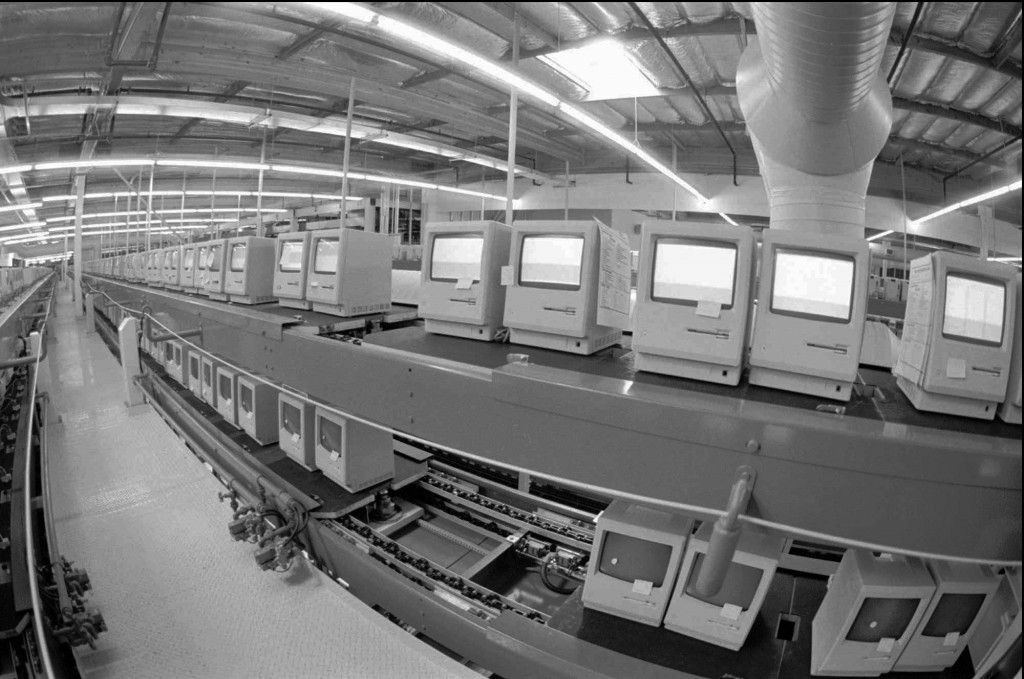







-m.jpg)






 Mike Wuerthele
Mike Wuerthele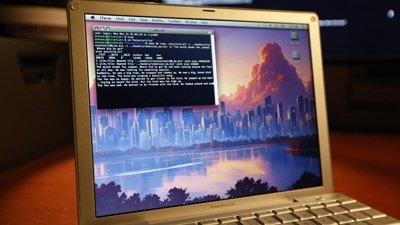
 Malcolm Owen
Malcolm Owen
 William Gallagher
William Gallagher
 Christine McKee
Christine McKee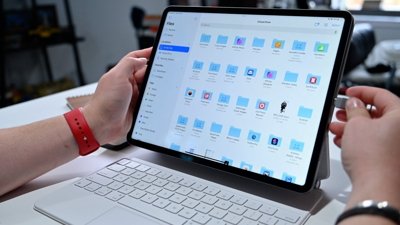
 Andrew Orr
Andrew Orr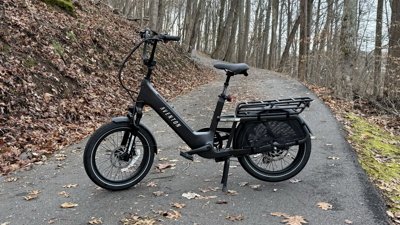
 Wesley Hilliard
Wesley Hilliard
 Brian Patterson
Brian Patterson
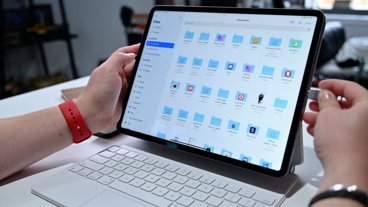







67 Comments
Dear Mr. Dilger, we are fully aware of how Apple is treated in the media. We have known this since 1984. Opinion pieces like the one you reference are par for the course. When it comes to Apple, all negative all the time is the status quo. The good news is that even after 40 years of this crap Apple has thrived and grown. This fact must really piss off a lot of people, including more than a few here on AppleInsider.
The bad news is that the WSJ gets millions of eyes on it while your editorials go nowhere from here. Sorry, bu that's how Apple coverage works.
DED,
TL; DR
I think, not being able to locally produce goods, was a self fullfilling prophecy of asshole (it) managers back then driven by squeezing the last penny out of almost loss making products.
I think it's hard to argue with the following points:
1. Manufacturing the iPhone at its current scale takes a huge number of workers.
2. China has those workers, along with needed infrastructure to support manufacturing
3. Only India has the number of workers, but their infrastructure sucks
4. There is a hard limit on the extent to which humans can be replaced by machines. GM and Apple learned this in the 80s, Tesla learned it with the Model 3; Darth Sidious learned it with the droid invasion of Naboo.
So, yeah, Apple can't really avoid manufacturing in china.